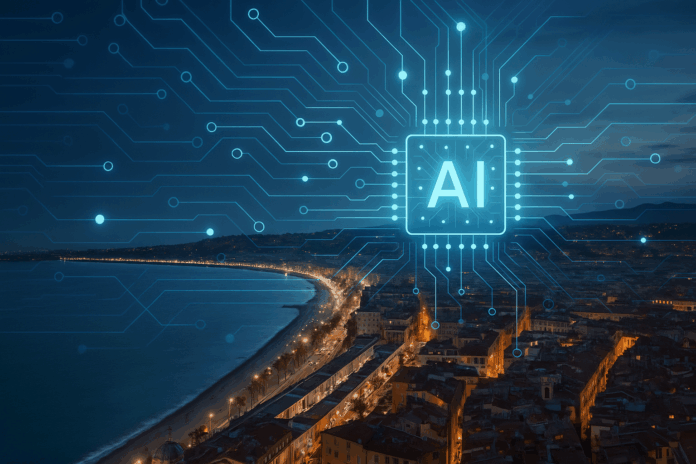The week has been marked by strong announcements in the digital field: European regulation, acceleration of artificial intelligence, deep tech, and data infrastructures. These global developments resonate particularly in Nice and the French Riviera, a region undergoing technological transformation.
Europe revises its digital regulation: a strong signal for innovative ecosystems
The European Commission has presented a comprehensive plan to simplify digital and AI rules.
The goal: modernize regulation, reduce legal complexity, and allow companies to innovate faster.
With Sophia Antipolis, the first European technology park, and the development of Nice Eco-Vallée, the region could directly benefit from these relaxations:
- acceleration of regional AI projects,
- fewer administrative constraints for startups,
- increased attractiveness for foreign investors.
Nice, already engaged in the Smart City program and urban open data, could thus see local initiatives deploy more quickly.
AI: European relaxation around “high-risk” technologies
Several tech giants – Google, Meta, OpenAI – have obtained adjustments regarding the application of AI rules deemed high-risk.
This could make innovation smoother in Europe.
Companies based at Sophia Antipolis, specializing in:
- digital health,
- smart mobility,
- cybersecurity,
- computer vision,
could gain in regulatory agility, especially those working on AI models applied to transport and urban management — strategic sectors for the Nice Côte d’Azur Metropolis.
Data centers: Europe accelerates — a crucial issue for the French Riviera
Microsoft, Google, and others have announced the creation of new AI computing hubs in Europe.
These infrastructures will become essential to support new-generation AI models.
Nice is already among the regions facing challenges:
- massive increase in data traffic,
- growing needs in digital public services,
- development of AI projects for security, mobility, and tourism.
Although no hyperscale data center is yet planned on the French Riviera, these European projects could ease local pressure and boost collaborations between companies from the Azur region and European cloud platforms.
Deep tech: French startup NcodiN and the “French-style” innovation
The startup NcodiN has raised €16 million to develop the world’s smallest laser for AI semiconductors.
A major innovation for the optical chip industry.
The Azur region, with its companies specializing in photonics, nanotechnologies, and embedded systems, especially around Sophia Antipolis and the Valrose campus, could collaborate with such advances for:
- more precise AI sensors,
- faster optical systems,
- applications in health, mobility, and security.
This strengthens the region’s position as a technological hub between fundamental research and industrial innovation.
Memory: new battleground in global AI
A report reveals that demand for LPDDR memory for AI servers could double by 2026.
Memory is becoming the limiting factor of AI infrastructures.
In Nice, projects involving:
- intelligent traffic management,
- urban video analysis,
- AI applied research,
are increasingly relying on heavy models, requiring more advanced memory.
Market evolution could:
- facilitate access to new AI servers,
- accelerate smart city projects,
- strengthen Azur research platforms.
Conclusion: Nice, between the Mediterranean and technological innovation
This technological week shows that Europe is strongly repositioning itself on artificial intelligence and digital infrastructures.
For Nice and the French Riviera, these developments mean:
- a more favorable regulatory environment,
- infrastructures better adapted to future needs,
- strengthening synergy between research, startups, and public institutions,
- increased attractiveness for European entrepreneurs.
Between the sea and technologies, the region confirms its place among the most dynamic innovative territories in southern Europe.


